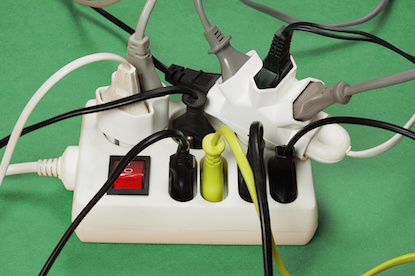When your thinking process feels stopped by too much on your mind, take a moment to distinguish whether you are overloaded or overwhelmed (or both at once).
“Overloaded” is a cognitive state. It occurs when you are juggling too many ideas in your mind, perhaps everything you need to do before an upcoming deadline. As you turn your attention to one thing, you lose track of another.
“Overwhelmed” is an emotional state. It consists of intense fear or doubt at the prospect of doing a difficult or challenging task. Worries fill your mind.
Both these states can make you feel out of control, with too much on your mind. Both can bring you to a halt in your thinking. But the solutions differ.
When the problem is cognitive — you can’t keep track of everything on your mind — you need to address the problem directly, by making space. The simplest, most familiar way to free mental space is to make a list of the ideas you’re trying to juggle. Once they are down on paper, you can think about them one at a time, contrast and compare them, decide priorities, etc. Making a list eliminates overload in many, many situations. (For more difficult cases, I recommend a process of spiraling, which I teach in Thinking Tactics.)
In contrast, when the problem is emotional, you do not always have to address the emotional issue head on. All you need to do is to calm down sufficiently that the emotions aren’t interfering with your thinking process.
The first step in calming down (and sometimes the only step needed) is to acknowledge what you’re feeling. By naming it for yourself, you immediately gain some perspective on the situation. (For more advanced techniques to recalibrate emotions, see my review of Mind Over Mood.)
When you are both overloaded and overwhelmed, I recommend addressing the overload first, because making a list or spiraling turns your attention toward solving the problems. Taking charge may even be enough to calm any sense of being overwhelmed. Regardless, it will give you more mental resources to cope with the emotional issues.
The first step in all problem solving methods is: identify the problem. This is just as true for mental problems as physical ones. When you accurately identify what’s stopping your thinking, you can efficiently solve the problem and move forward.









0 Comments